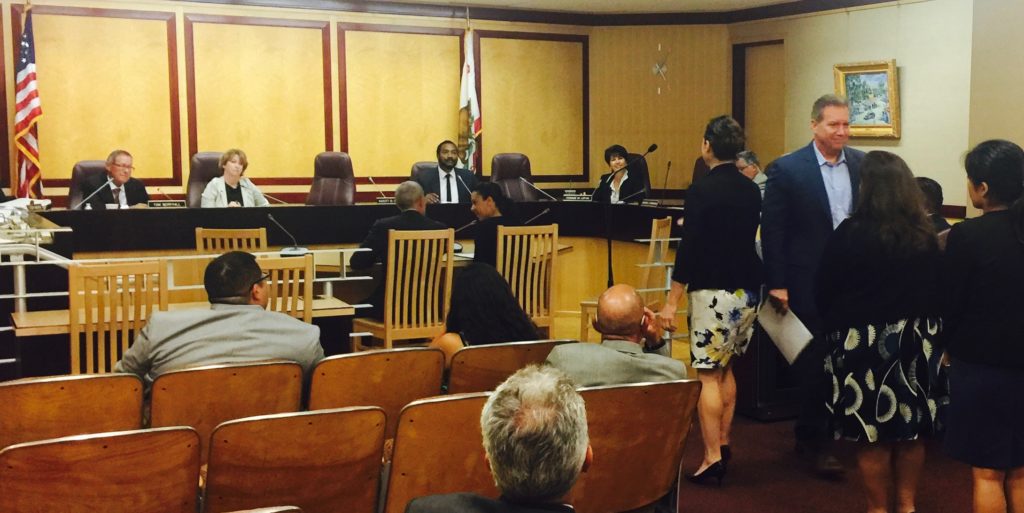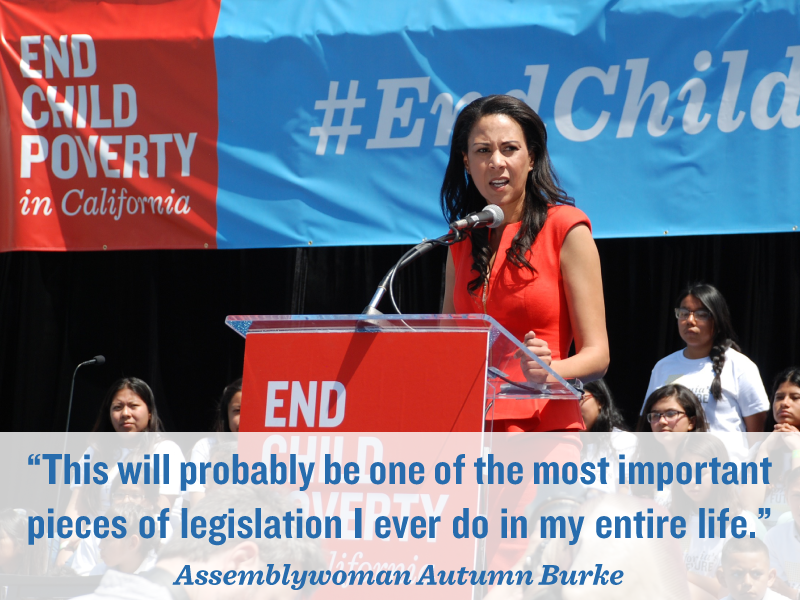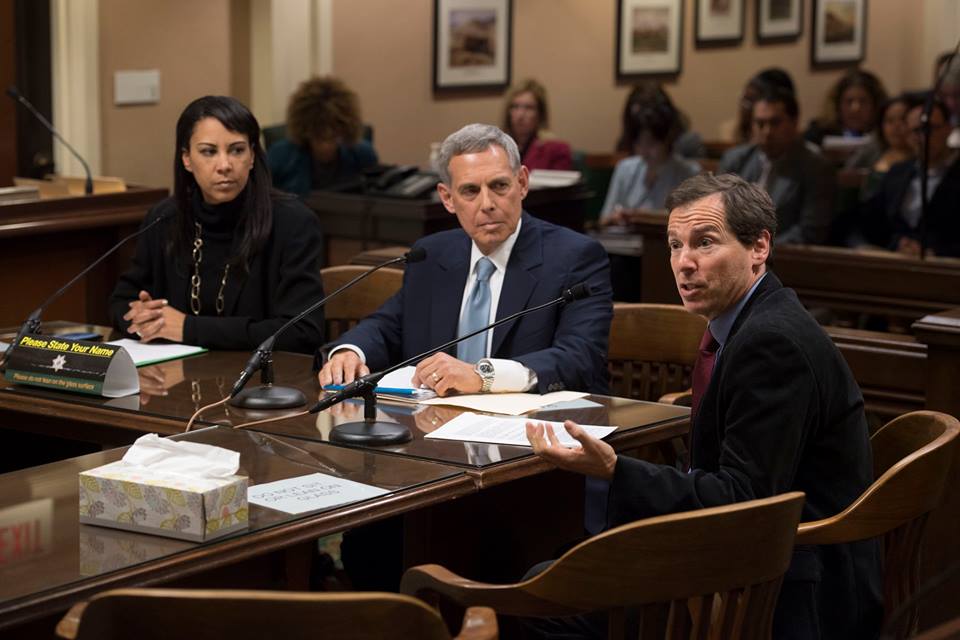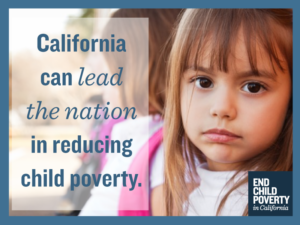2020 Wins for the End Child Poverty California Movement
We want to share End Child Poverty California movement wins from the most recent California budget.
In spite of the fact that this continues to be an incredibly difficult year, we are moving forward together. We’re proud to work with such a phenomenal group of partners, parents and advocates. We believe ALL our children deserve to be healthy, housed and fed.
On June 29, 2020, California’s newest state budget was finalized. For the first time ever, undocumented families are included in the poverty-fighting CalEITC cash-back tax credit.
This means money going directly to working families who have been left out of economic relief and necessary income supports during the COVID-19 pandemic. We know this money will be used in local communities. We know it will support some of our most vulnerable undocumented families who urgently need money for food, bills, and health care.
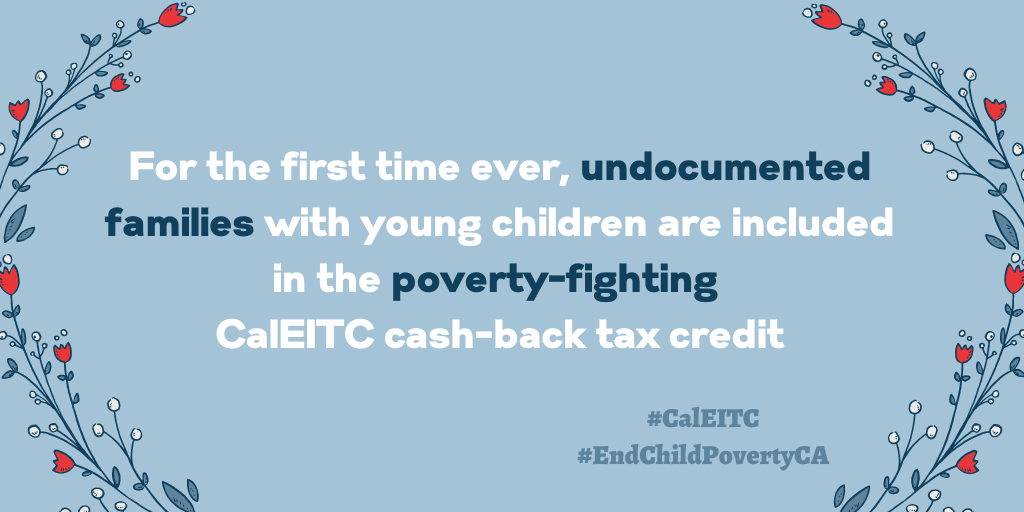
The CalEITC tax credit change applies to undocumented families who have children under six, and who file taxes using an Individual Tax Identification Number. These families don’t have Social Security Numbers, but they pay taxes. The change also includes the $1,000 Young Child Tax Credit for any family with children under six earning $1 or more. These changes go into effect next year. For the first time, ALL California families with young children who file taxes and make less than about $30,000 per year will be eligible for these life-saving credits.
We will continue working hard alongside our partners and the CalEITC Coalition and the Safety Net For All Coalition (a network of over 125 organizations) so that more California families can be included in immediate and ongoing relief.
And there is more good news: Both of our End Child Poverty California Senate bills passed out of the State Senate with bipartisan support!
Senate Bill 1103: Workforce Support Services for Californians (Authored by Sen. Melissa Hurtado)
Many promising youth and community members haven’t been able to complete career training programs that lead to higher wage jobs and a path out of poverty, due to the daily challenges of living in poverty. These include lack of child care, commutes of two- to three-hours each way, and the need to work multiple low-wage jobs to support their families while going to training.
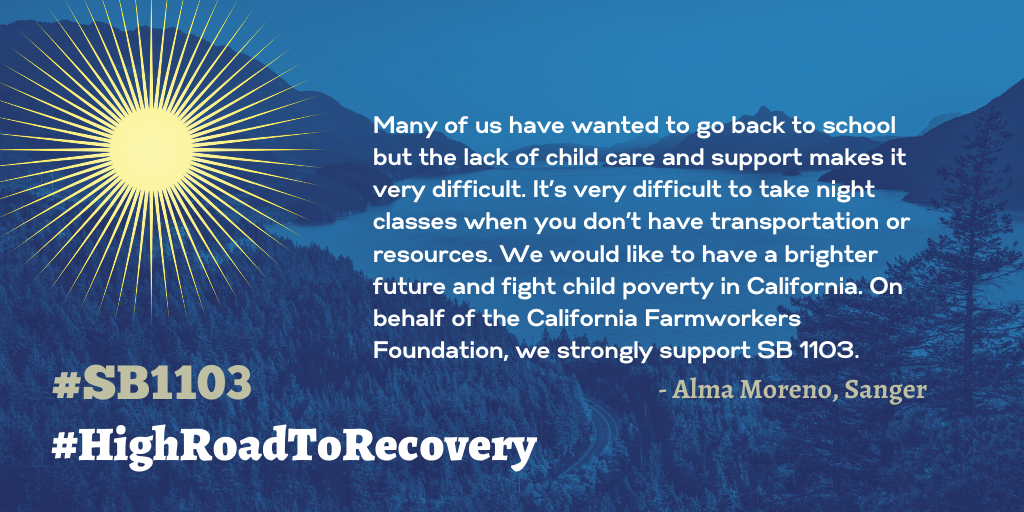
SB 1103 by Senator Melissa Hurtado (D – Fresno, Kern, Kings and Tulare Counties) creates the High Roads Workforce Training Program that addresses the issues that stop people from graduating. This is an important commitment to families and brighter futures. SB 1103 is particularly important to California’s economic recovery from COVID-19.
Read Alicia’s and Lesly’s stories about why SB 1103 is so important.
Senate Bill 1409: CalEITC Tax Credit Auto-filing Pilot for Families with Low Incomes (Authored by Senator Anna Caballero)
We know that many families earn so little that they are not required to file taxes, yet they are eligible for the CalEITC tax credit and Young Child Tax Credit that would help them with stability and basic necessities.
SB 1409 authored by Senator Caballero (D – Salinas Valley and parts of the Central Valley) seeks to develop efficiencies in tax filing, so that families can directly receive their CA EITC and other tax benefits. Research has shown that as much as $2 Billion State and Federal Tax Credits are left unclaimed. This bill would cut through bureaucracy and would create methods for direct payments to families.
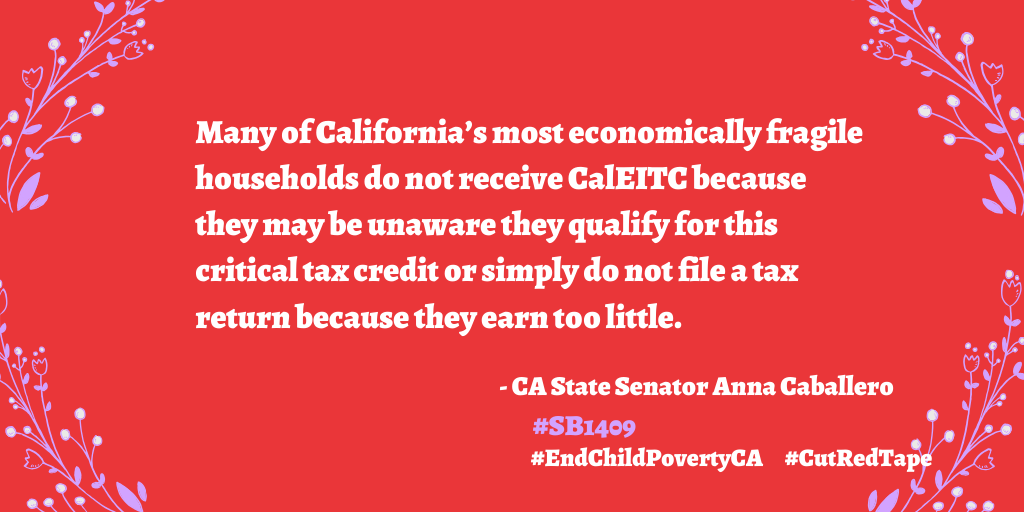
This crisis has had an outsized impact on our families in poverty and together we can make sure we change the way we support and create opportunities for families. Looking forward to sharing more good news in support of children and families soon.
More California budget news and analysis from partners:
- CalEITC Coalition, via United Ways of California, Children’s Defense Fund-CA, California Immigrant Policy Center (focused on CalEITC tax credit)
- California Alternative Payments Program Association (CAPPA) budget overview (focused on child care)
- Equal Rights Advocates (focused on child care, CalWORKs, SSI, CalEITC)
